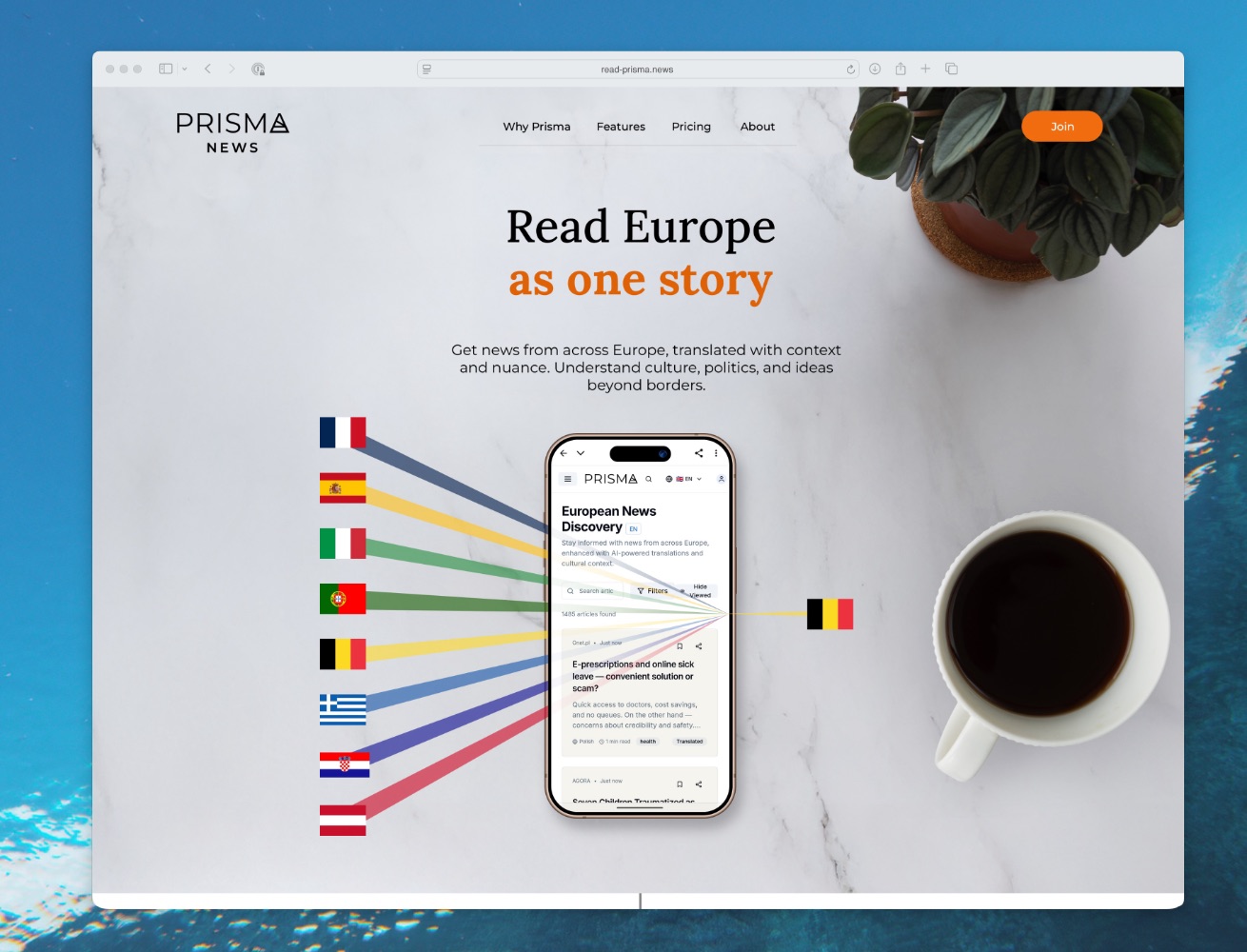Prisma News: Building a European News Platform Against the Odds
When I first considered creating Prisma, one clear issue stood out: Europe lacks a unified media space. Each country produces outstanding journalism, but these stories remain isolated by language barriers. News that makes waves in Spain may never reach readers in Germany, even if it's highly relevant to them. The English-language press often serves as an intermediary, but this frequently distorts the story. As a result, people receive only second-hand accounts of European events, rather than hearing directly from national voices across the continent.

Europe is increasingly connected through shared political systems, markets, and cultural exchanges, yet news remains largely siloed along national lines. Recognising this persistent divide, I created Prisma News to bridge these gaps. By leveraging translation technology and expert editorial curation, Prisma ensures stories are presented as authentically as possible, bridging linguistic divides and allowing readers to experience diverse local perspectives firsthand. In doing so, Prisma doesn't just aggregate news, it brings the continent's diversity to a wider audience, fostering shared understanding and unity instead of reinforcing existing divisions.
Of course, having a vision is the easy part, building it is another thing entirely. As I bootstrap this project, with no newsroom budget or venture funding, just grit, coding, and belief in the mission, each decision feels significant. For example, should I prioritise the AI pipeline to guarantee fast, accurate translations, or invest my limited time in perfecting the user experience right away? Should I prioritise early partnerships with publishers, or should I focus on building the product first and then seek deals? These dilemmas are all part of trying to transform an ambitious idea into a functioning platform.
Right now, I've chosen to focus primarily on demonstrating that AI can be an excellent translator, one that preserves nuance and provides cultural context, allowing international readers to understand articles as locals do. The current, simple user interface reflects this choice. I hope that, for now, the simple UI keeps attention on the articles rather than on flashy design, though I look forward to developing a more engaging way of presenting news in the future. Personally, I find great satisfaction in scrolling through clusters of stories and witnessing how different countries frame the same issue. These moments reinforce why I started on this journey to connect Europe's conversations.
But why does Europe need Prisma News anyway?
Healthy democracies depend on shared understanding. If we aim to build a genuine European public sphere, one that transcends isolated national conversations, we need platforms that can bring people together. While I don't pretend Prisma will close all of Europe's information gaps overnight, I believe it can serve as a meaningful step toward a more cohesive, interconnected media landscape.
It's certainly messy at times, and sometimes it feels nearly impossible. Yet, building Prisma News feels essential, an effort that could show language need not divide Europe when it comes to understanding itself. Even if I manage it only on a small scale, that would be proof of what's possible when technology serves connection over separation.
That wraps up my first article on Prisma News. There is much more to come. The weeks ahead promise to be exciting and challenging, and I can't wait to share more progress soon. Talk soon!